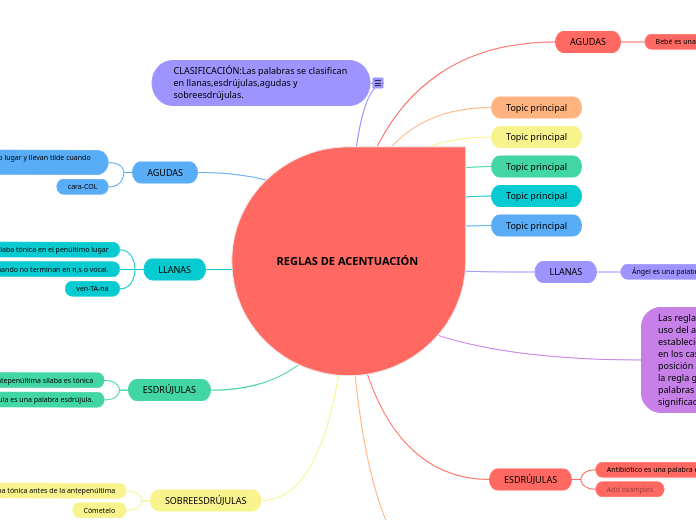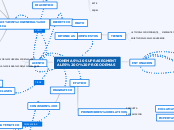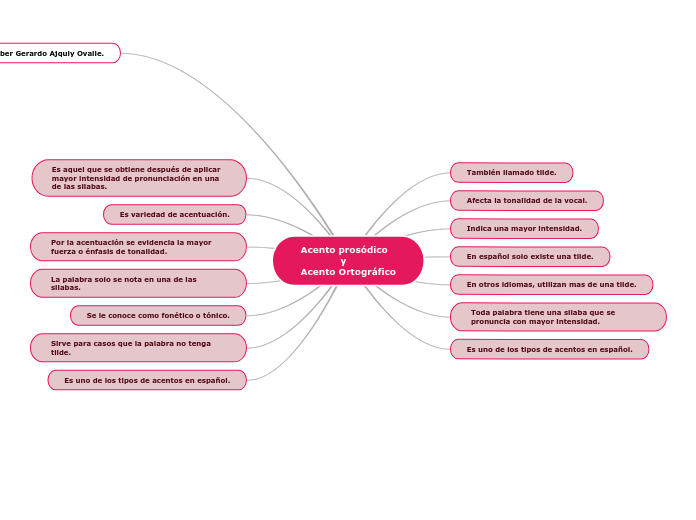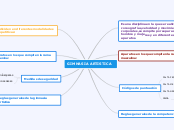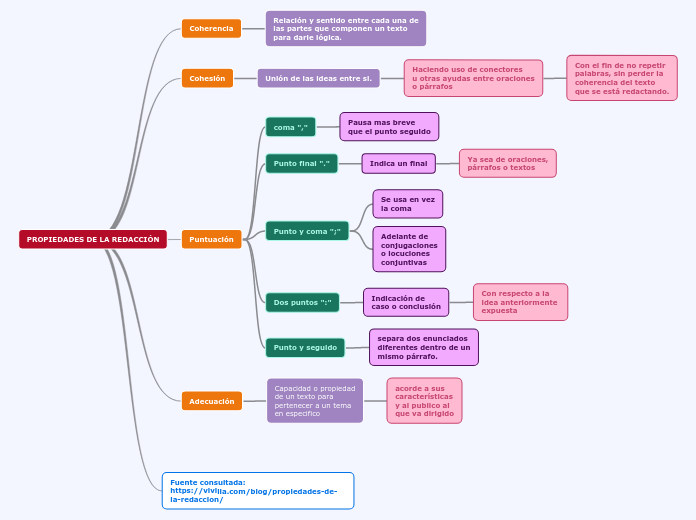REGLAS DE PUNTUACIÓN
Reproducen la entonación de la lengua oral,de ella depende la correcta expresión de los lenguajes escritos así como su comprensión.
REGLAS DE ACENTUACIÓN
A noun is a word that functions as the name of some specific thing or set of things, such as living creatures, objects, places, actions, qualities, states of existence, or ideas.
Compound nouns are words where two nouns have been stuck together to make a new noun. Compound nouns should be written as one word, without a hyphen.
Cómetelo
Sílaba tónica antes de la antepenúltima
Generic nouns are nouns that are part of a generic statement. Generic nouns can be singular or plural. The opposite of generic nouns is collective nouns.
The difference between definite/indefinite and generic nouns is that in the sentence there must be a blanket statement or question.
Esdrújula es una palabra esdrújula.
Su antepenúltima sílaba es tónica
Proper nouns are the names of specific people or places. They should always begin with a capital letter.
ven-TA-na
Llevan tilde cuando no terminan en n,s o vocal.
Sílaba tónica en el penúltimo lugar
A concrete noun is a noun that can be identified through one of the five senses (taste, touch, sight, hearing, smell).
cara-COL
Sílaba tónica en en último lugar y llevan tilde cuando terminan en n,s o vocal
CLASIFICACIÓN:Las palabras se clasifican en llanas,esdrújulas,agudas y sobreesdrújulas.
Las reglas de acentuaciónLas reglas de uso del acento ortográfico o tilde están establecidas para conocer la sílaba tónica en los casos en que se encuentra en una posición diferente de la esperable según la regla general o para diferenciar palabras idénticas, pero con distinto significado.
Possessive nouns are nouns which possess something, normally another noun.
SOBREESDRÚJULAS
Countable nouns are nouns that can be counted, even if the number might be extraordinarily high.
Uncountable nouns are nouns that come in a state or quantity which is impossible to count; liquids are uncountable, as are things which act
like liquids.
Quédatelo es una palabra sobreesdrújula
ESDRÚJULAS
A noun which refers to a group of things/people.
Add examples
Antibiótico es una palabra esdrújula
REGLAS DE PUNTUACIÓN
Reproducen la entonación de la lengua oral,de ella depende la correcta expresión de los lenguajes escritos así como su comprensión.
Las reglas de acentuaciónLas reglas de uso del acento ortográfico o tilde están establecidas para conocer la sílaba tónica en los casos en que se encuentra en una posición diferente de la esperable según la regla general o para diferenciar palabras idénticas, pero con distinto significado.
LLANAS
A noun which cannot be identified by using one of the five senses (taste, touch, sight, hearing, smell).
Ángel es una palabra LLANA
Topic principal
AGUDAS
Irregular nouns are nouns which don’t follow a spelling pattern when pluralized.
Bebé es una palabra AGUDA
